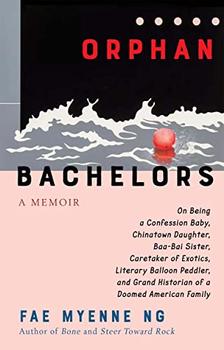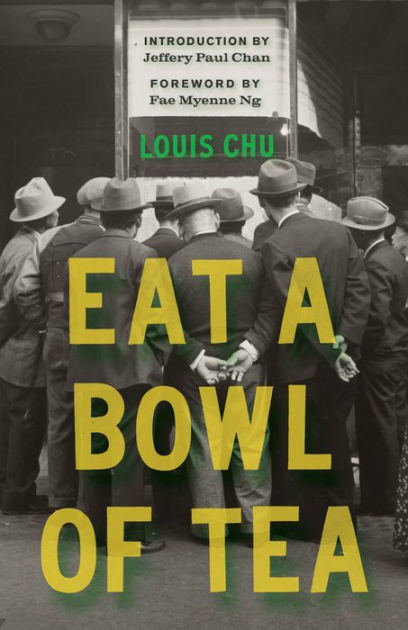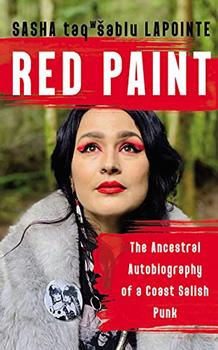Summary | Excerpt | Reviews | Beyond the book | Read-Alikes | Genres & Themes | Author Bio

A Memoir
by Fae Myenne NgFrom the bestselling and award-winning author of novels Bone and Steer Toward Rock, Fae Myenne Ng's Orphan Bachelors is an extraordinary memoir of her beloved San Francisco's Chinatown and of a family building a life in a country bent on their exclusion
In pre-Communist China, Fae Myenne Ng's father memorized a book of lies and gained entry to the United States as a stranger's son, evading the Exclusion Act, an immigration law which he believed was meant to extinguish the Chinese American family. During the McCarthy era, he entered the Confession Program in a failed attempt to salvage his marriage only to have his citizenship revoked to resident alien. Exclusion and Confession, America's two slamming doors. As Ng's father said, "America didn't have to kill any Chinese, the Exclusion Act ensured none would be born."
Ng was her parents' precocious first born, the translator, the bossy eldest sister. A child raised by a seafaring father and a seamstress mother, by San Francisco's Chinatown and its legendary Orphan Bachelors — men without wives or children, Exclusion's living legacy. She and her siblings were their stand-in descendants, Ng's family grocery store their haven.
Each Orphan Bachelor bequeathed the children their true American inheritance. Ng absorbed their suspicious, lonely, barren nature; she found storytelling and chosen children in the form of her students. Exclusion's legacy followed her from the back alleys of Chinatown in the 60s, to Manhattan in the 80s, to the high desert of California in the 90s, until her return home in the 2000s when the untimely deaths of her youngest brother and her father devastated the family. As a child, Ng believed her father's lies; as an adult, she returned to her childhood home to write his truth.
Orphan Bachelors weaves together the history of one family, lucky to exist and nevertheless doomed; an elegy for brothers estranged and for elders lost; and insights into writing between languages and teaching between generations. It also features Cantonese profanity, snakes that cure fear and opium that conquers sorrow, and a seemingly immortal creep of tortoises. In this powerful remembrance, Fae Myenne Ng gives voice to her valiant ancestors, her bold and ruthless Orphan Bachelors, and her own inner self, howling in Cantonese, impossible to translate but determined to be heard.
Ng perceives Chu's novel as a kind of taking back of power for Chinese America, and this book, at its best, does something similar for a new generation with its humor and vulgarity and heart. Orphan Bachelors reads like compensation for the still-prevalent sanitized, stereotypical depictions of Asian Americans eager to earn their place through hard work and dedication to "family," a word that is today often used as a euphemism for the absence of sex ("family-friendly") or the absence of racialized people (as in, sometimes, "a good neighborhood for families"). Ng rejects this split between the family and the self, the family and the other, the family and the act that is frequently instrumental in creating it. Instead, she suggests that family separation and oppression have the insidious effect of stifling future generations' individual autonomy and desires — personal, creative, sexual — and that these things merit preservation and cultivation...continued
Full Review
(886 words)
This review is available to non-members for a limited time. For full access,
become a member today.
(Reviewed by Elisabeth Cook).
 In her book Orphan Bachelors, Fae Myenne Ng recalls her life-changing discovery of Louis Chu's "defiant, subversive novel" Eat a Bowl of Tea (1961), now considered a classic of Asian American literature, which depicts Manhattan Chinatown bachelor society in the late 1940s.
In her book Orphan Bachelors, Fae Myenne Ng recalls her life-changing discovery of Louis Chu's "defiant, subversive novel" Eat a Bowl of Tea (1961), now considered a classic of Asian American literature, which depicts Manhattan Chinatown bachelor society in the late 1940s.
The novel begins with two friends living in this milieu, Wang Wah Gay and Lee Gong. They are both technically married men but have been separated from their wives for decades. This is a normal state of affairs due to racist immigration laws that have kept Chinese male laborers from bringing their families to the United States, but the Exclusion Act has been repealed, and it is now possible for a Chinese American man to bring a wife to the country from China. The ...
This "beyond the book" feature is available to non-members for a limited time. Join today for full access.

If you liked Orphan Bachelors, try these:

by Sabrina Imbler
Published 2024
A queer, mixed race writer working in a largely white, male field, science and conservation journalist Sabrina Imbler has always been drawn to the mystery of life in the sea, and particularly to creatures living in hostile or remote environments.

by Sasha taqʷšəblu LaPointe
Published 2023
An Indigenous artist blends the aesthetics of punk rock with the traditional spiritual practices of the women in her lineage in this bold, contemporary journey to reclaim her heritage and unleash her power and voice while searching for a permanent home.
Too often we enjoy the comfort of opinion without the discomfort of thought.
Click Here to find out who said this, as well as discovering other famous literary quotes!